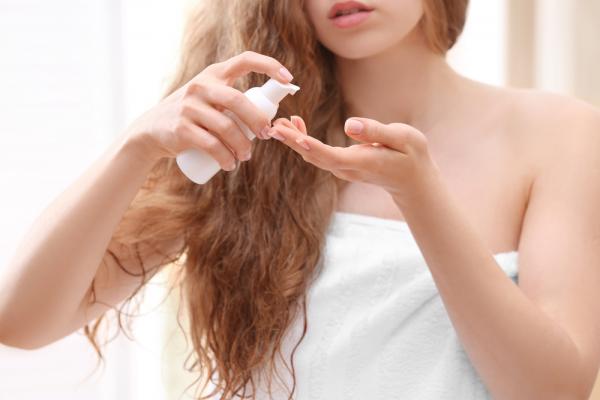
June 19, 2018 — Women with dense breast tissue soon might be adding a new product to their skincare routine to help them fight breast cancer. A clinical trial at USC Norris Comprehensive Cancer Center is testing whether a topical gel containing 4-hydroxytamoxifen (4-OHT) is effective at decreasing breast tissue density, which may lower a woman’s risk of developing breast cancer. Additionally, the gel may reduce the need for supplemental testing for breast cancer, saving women time, money and anxiety.
Approximately half of women in the United States have dense fibroglandular breast tissue, which is unrelated to breast size or shape. While research has yet to confirm the cause of dense breasts, they have been linked with higher levels of estrogen. Women with dense breasts are at a sixfold increased risk for developing breast cancer. The long-term objective of the study is to determine whether decreasing fibroglandular breast density can prevent breast cancer, or if high breast density is simply a marker for increased risk.
Dense breast tissue also causes diagnostic challenges because it appears white and opaque on a mammogram. This can obstruct the view of tumors, which also appear white and opaque. Women with dense breasts who are at a high risk of developing breast cancer frequently require further examinations to confirm the absence of tumors. Further testing incurs additional time, cost and stress for the patient, who nervously waits to clarify her inconclusive mammogram results.
“To help women with dense breast tissue fight cancer, we need a deeper understanding about the nature of breast density as well as imaging techniques that can easily detect tumors more easily,” said the trial’s principal investigator at USC Norris, Pulin Sheth, M.D., director of the breast center at USC Norris and assistant professor of clinical radiology at the Keck School of Medicine of USC. “We are excited to assess a clinical innovation that could potentially fulfill both of those needs through a simple daily topical application.”
The clear, odorless gel has the look and feel of hand sanitizer and absorbs just as quickly. Women with dense breast tissue would apply the gel directly to the breast after bathing, incorporating the product into their daily skincare routine. The gel has no effect on the outward appearance of the breasts.
4-OHT is a byproduct of tamoxifen, a commonly prescribed oral cancer therapy that blocks the estrogen that breast cancer tumors need to grow. When a patient takes oral tamoxifen, her liver metabolizes the drug and sends 4-OHT to the breasts, where it binds with the tumor’s hormone receptors and keeps estrogen away. However, other metabolized byproducts of the drug circulate through the bloodstream to different areas of the body, which can cause side effects like hot flashes, clotting issues and vaginal bleeding. The hope is that a topical 4-OHT gel will deliver smaller, focused doses to decrease estrogen in the breast, thus lowering breast density without significant side effects.
The prospective, randomized, double-blind, placebo-controlled 4WARD trial involves an initial mammogram screening, yearlong use of the gel and follow-up visits once every three months until the participant’s next annual mammogram. USC Norris is actively recruiting for the trial, though space is limited and recruitment will close once the study reaches capacity. There are another 17 national and international sites enrolling patients. Those interested in enrolling can call (213) 509-0998 for more information.
For more information: www.uscnorriscancer.usc.edu


 February 18, 2026
February 18, 2026 









